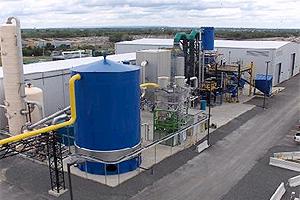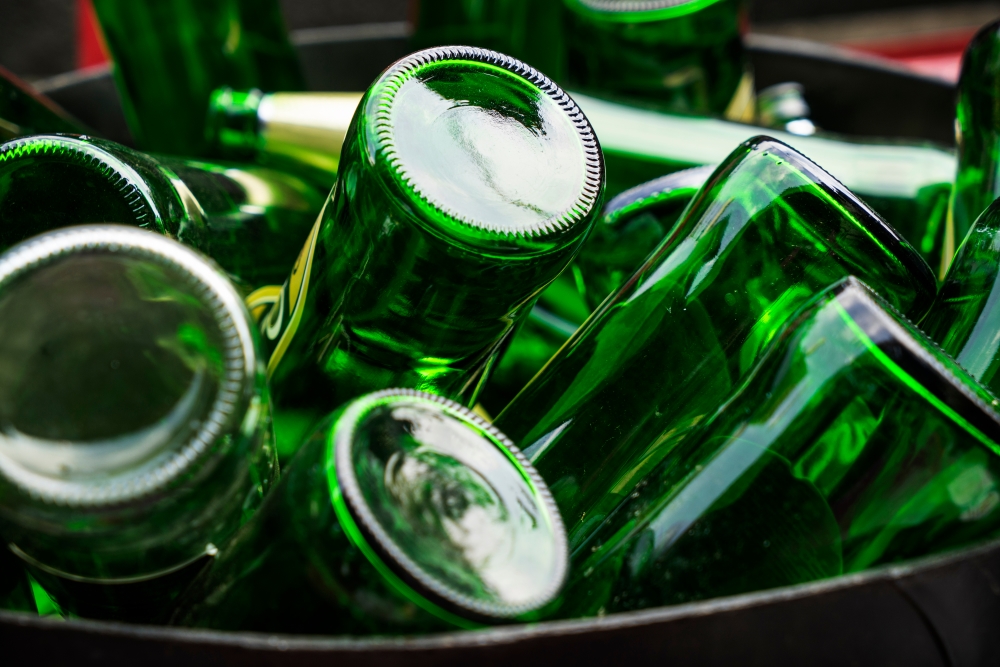As much as £60 million is being put into the project by EnviroParks Ltd and its partners, to establish organic waste and mixed waste treatment facilities next to the Tower Colliery at Hirwaun.
A public consultation on the project is to begin next week.
Success could lead to more “EnviroParks” being developed around the UK over the next five years.
The Hirwaun site itself is large enough for the processing of over 250,000 tonnes of non-hazardous waste a year. Initially, though, an anaerobic digestion plant will be designed to handle 50,000 tonnes of organic wastes a year, with the potential for a 100% expansion.
A gasification plant – using plasma technology – could take packaged food waste as well as a certain amount of mixed “black bag” waste. It would be capable of generating about 25MW of energy from the waste being subjected to very high temperatures.
Both energy and biofuels created by the facilities could be used by businesses attracted to locate on the park by the available “renewable” energy.
Contracts
David Williams, project director for Tredegar-based EnviroParks, told letsrecycle.com today that the company would be seeking waste supply contracts from the Heads of the Valleys area of South East Wales. He added that waste could come in from other councils as well as commerce and industry, including supermarkets.
We have worked hard with the Welsh Assembly to move from concept to reality.
David Williams, EnviroParks Ltd
The Welsh Assembly has placed certain requirements on the project to take in at least 15% source-separated organic waste from households for composting via anaerobic digestion, rather than putting all received waste straight through a gasification plant.
This requirement was imposed to help meet the 25% national composting target for Welsh municipal waste, and is the reason behind the intention to develop the anaerobic digestion plant.
Partners
Partner companies for the project include Canadian gasification specialists Plasco Energy Group, which established an operational demonstration facility in Ottawa this summer using its plasma technology. The trial plant processes about 35,000 tonnes of material a year.
Plasco is self-funding, and will bring around £40 million of funding to the table for its gasification plant.
Other partners include Northern Irish anaerobic digestion specialists B9 Organic Energy, Derbyshire-based agricultural waste specialists Agritec Systems Ltd and York-based oil processing specialists Ebortec Ltd, as well as Austrian firm Biodiesel Technologies GmbH.
Technology
Mr Williams explained that source-separated waste would go straight to the anaerobic digestion facility, while contaminated material, packaged food and mixed waste would require some form of separation before the organic fraction could be treated in the digester. The other fraction would then go to the gasification facility.
He said the company had looked into various separation technologies, but that a “dirty” materials recycling facility such as the one at Rhondda Cynon Taf could suffice.
Anaerobic digestion involves the bacterial breakdown of organic material in controlled levels of air, usually within tanks. It usually generates a solid or liquid digestate and “biogas”, which is mostly methane and used as a fuel to generate energy.
Gasification using plasma technology involves waste being heated to very high temperatures – 5,000 degrees centigrade and above – in an oxygen-starved environment. This sees materials turned into a “syngas” that can be used for energy generation and a glassy “slag” residue, which EnviroParks hopes could be used as some form of aggregate.
Such a use of the residue could, it believes, see the project delivering the mythical 100% landfill diversion rate that many in the waste industry see as impossible.
As for the energy, Mr Williams said: “The biofuels and the electricity produced from recycling operations will be sold back to other businesses on the park who are attracted there by the opportunity to buy and use green renewable energy.
“We have worked hard with the Welsh Assembly to move from concept to reality and would expect the park to be operational by the second quarter of 2009,” he added.
EnviroParks has already arranged joint venture agreements with companies including EnviroActive Ltd, Marlborough Developments Ltd and the London-based Climate Corporate Advisory Services LLP to roll out a number of parks around the UK over the next five years.
The company has taken on Savills and ERM as consultants for the project.











Subscribe for free